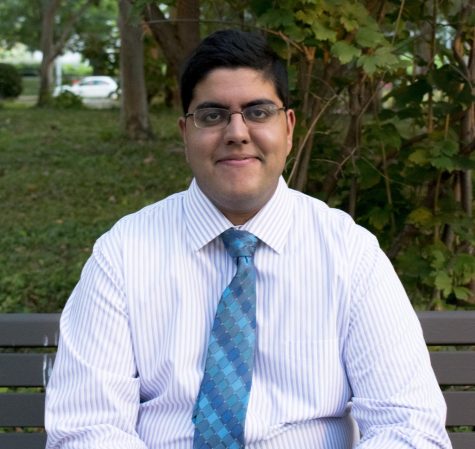Researchers use spice to fight cancer
Dr. Afshin Dowlati, professor of medicine in hematology and oncology at the CWRU School of Medicine, recently published a paper with several collegeaus that showed circumin, an ingredient in the spice turmeric, killed cells of the cancer mesothelioma.
He first found that hyperactivation of STAT3, a pathway involved in cell growth and death that takes signals from the surface of a cell to the DNA, was causing the cancer to develop. If STAT3 is activated often, it increases the chance of a cell becoming cancerous.
“You can think of a bike messenger in New York City, just running back and forth,” he explained.
The STAT3 has an inhibitor which ensures that it doesn’t become over activated. In undamaged human cells, genes make a certain quantity of this inhibitor. In mesothelioma cells, though, the levels of this inhibitor are below normal.
Previous studies have shown that circumin can have many effects on cancer and human cells. Because of this, Dowlati decided to test it on mesothelioma cells. He found that the compound increased the inhibitor levels, regulating STAT3.
It is unlikely that circumin itself will become a treatment for mesothelioma because it is difficult to get it to the cells in the human body. Instead, a synthesized compound with a similar structure and properties could provide better results.
It’s often difficult to find a treatment that matches these criteria, but Dowlati is a fan of the challenge. While in medical school, he was drawn to studying cancer, not just because of its biological mechanisms, but because it is such a challenging field.
Dowlati appreciates the hardships and the room for growth. Because of this, he chose to focus his career on the thoracic cavity, an area where new treatments are investigated and found constantly.
Mesothelioma also presents challenges when it comes to finding its cause. Some causes of mesothelioma’s initial development are known, but some remain undiscovered.
Asbestos has been found to increase the likelihood of a person developing the disease, but it isn’t always the cause. Many times, it is difficult to find the culprit.
“There are areas of Turkey that have a high incidence of mesothelioma,” said Dowlati. “However, it has nothing to do with asbestos. It has to do with certain minerals that are present in the soil.”
In this situation, says Dowlati, it is important to take a step back and look at the big picture. Similarly, he wanted to make sure he would be able to do this in his career.
Unlike most doctors, Dowlati does basic scientific research and performs clinical trials in addition to treating patients. With this, he is able to see all the steps that result in applied treatments, from the petri dish beginnings to tests in the human body to the final result of helping patients.
“To be able to help, even a little bit, is really what drives me the most,” said Dowlati.

Kushagra Gupta is a cognitive science and biology student and is working towards a masters in medical physiology. He's served as The Observer’s The Director...

